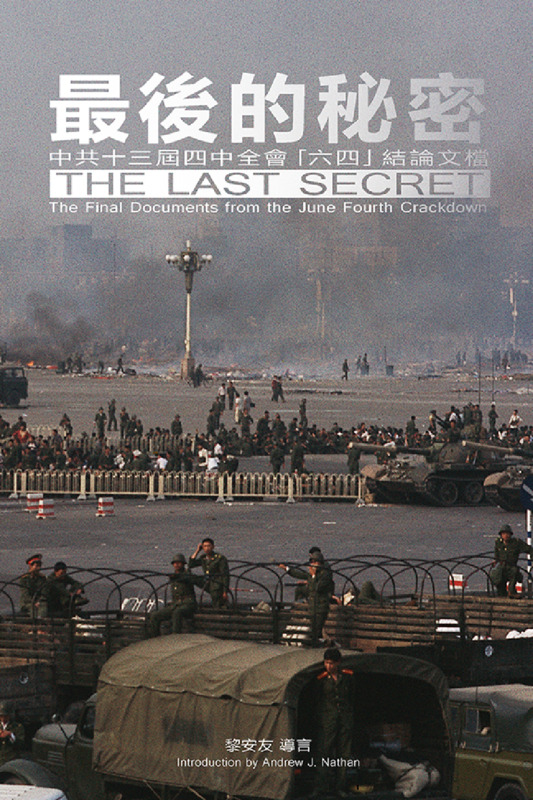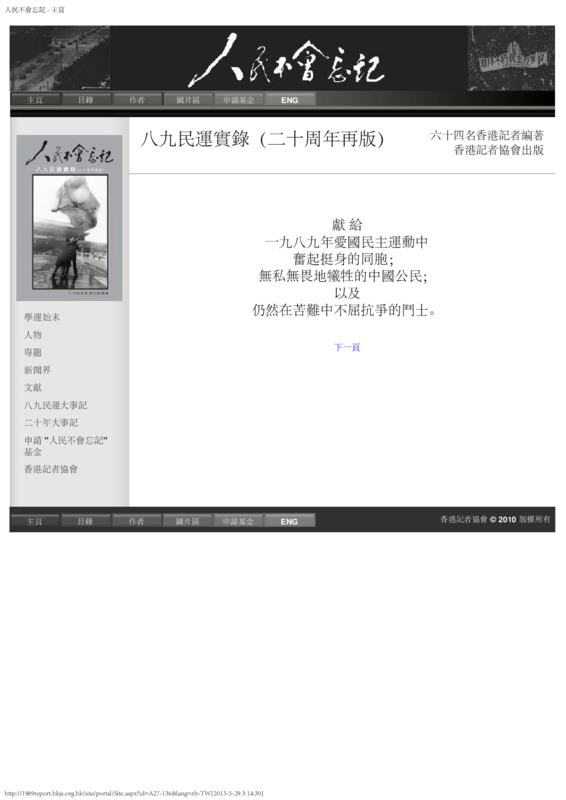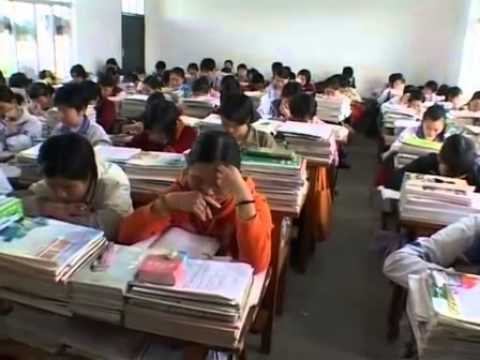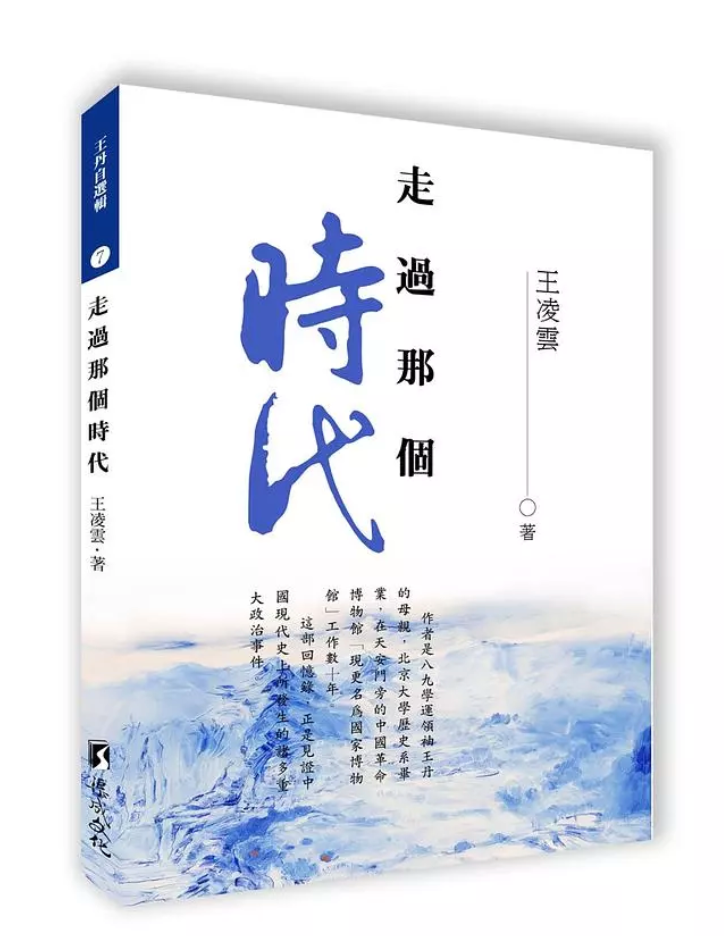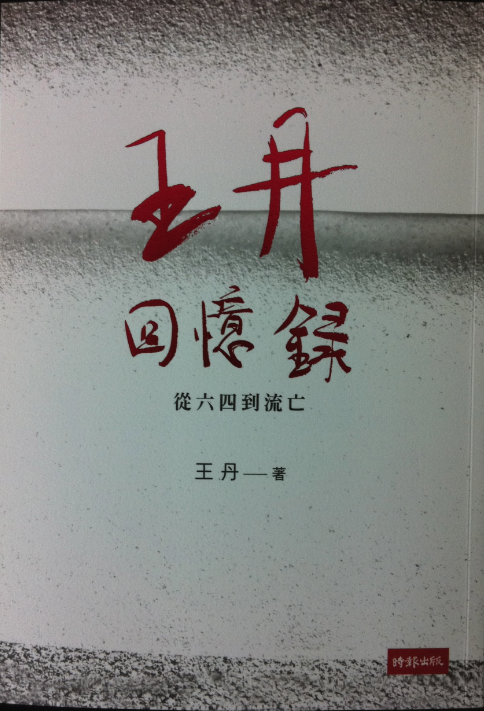Explore the collection
Showing 181 items in the collection
181 items
Film and Video
The Central Plains
Due to poverty in rural areas in Henan Province—part of China’s Central Plains—many farmers contracted AIDS by selling their blood. This documentary dives into the lives of these AIDS patients, depicting the manner in which they cope with life, officials’ responses, and the stories of volunteers who helped the infected villagers. The filmmaker visited several villages with high incidence of AIDS, interviewing and recording people’s accounts of how the “plasma economy” arose. This documentary presents the living condition of families and individuals, especially women and children, who contracted AIDS due to blood donation and blood transfusions, and demonstrates the formation of grassroots organizations.
This film is in Chinese with both Chinese and English subtitles.
Film and Video
The Coal Road
This documentary tells the story of the lives of three families of coal miners in the mountains of eastern Sichuan. Winner of the 35th Margaret Mead Movie Director's Award in 2011. Directed by Liu Yuanchen.
Book
The Collected Works of He Jiadong
He Jiadong is a Chinese publisher. He joined the Chinese Communist Party at an early age. After 1949, he founded the Workers' Publishing House, one of the propaganda mouthpieces of the CCP. In 1957, he was designated as a rightist and later labeled as an anti-Party element. In 1965, Kang Sheng criticized him. He was sent down to Chengwu County in Shandong Province, where he was put under local control for 14 years. During the Cultural Revolution, he was taken back to Beijing and criticized, which affected his family and led to the unnatural death of his mother and two sons. In 1979, after the rightist was corrected and completely rehabilitated, he became the executive vice-president and deputy editor-in-chief of the Workers' Publishing House; in 1983, he founded the monthly <i>Rensheng (Life)</i>. In 1984, he founded <i>Kaituo (Pioneering)</i> magazine. He was investigated for publishing Liu Binyan's <i>The Second Kind of Loyalty</i>, and resigned from his post in 1985. The above weekly newspapers, bimonthly magazines and websites were all suspended and closed by the authorities. He has written a large number of articles exploring China's development path from the end of authoritarianism to constitutional democracy. He himself had a 60-year career as a "red publisher" but never had the freedom to publish. Even his own collection of essays was never published. Until the end of his life, he never saw a printed volume of his essays—the printed books were seized and confiscated by the Chinese authorities.
The book can be purchased <a href="https://www.fellowspress.com/shop1/p/-4"> link</a>.
Book
The Goddess of Freedom of the Chinese Nation -- An Anthology of Essays in Honor of Lin Zhao 40 Years After Her Death
Lin Zhao, formerly known as Peng Lingzhao, a native of Suzhou, was admitted to the journalism department of Peking University in 1954, but was classified as a Rightist in 1957. She was arrested and imprisoned in October 1960 because of her involvement with the underground magazine <i>Spark</i>. In 1965, Lin Zhao was sentenced to 20 years' imprisonment for "counter-revolutionary crimes." On April 29, 1968, she was sentenced to death and executed on the same day at the age of 36. This book is a collection of more than sixty articles written in memory of Lin Zhao.
Film and Video
The Gulag Book
This movie records how Zhang Xianzhi went from being a soldier to a prisoner and then to an independent writer. His experience and thought process is compared with that of the Russian writer Solzhenitsyn. The title of the film is taken from the title of Zhang Xianzhi's book <i>Anecdotes from the Gulag</i>, which takes the viewer on a journey to China's Gulag Archipelago, a labor camp in Sichuan. The extreme conditions and little-known tragic history of the camp are presented. The movie is 42 minutes long and was filmed in 2012.
Book
The Last Secret : The Final Documents from the June Fourth Crackdown, Introduction by Andrew J. Nathan
The documents in this book come from two high-level meetings of the CCP held after the June 4 Tiananmen Square Incident in 1989, namely, the Sixth Plenary Session of the Sixth Committee of the Beijing Municipal Committee of the CCP and the Fourth Plenary Session of the Thirteenth Central Committee of the Chinese Communist Party (CCP), which was held on June 23rd and 24th at the Beijing West Guest House. The author claims that the documents were copied and kept for many years by an unnamed senior official within the CCP. This set of documents was formed when the CCP made its final conclusions on the June 4 incident. It is also a record of the high-level political operations within the CCP. These documents reveal the ultimate secret of the mechanism by which the Communist Party has always held absolute power. It was published by New Century Press in 2019. Special thanks to Bao Pu, founder of Hong Kong's New Century Press and son of Bao Tong, former political secretary of Zhao Ziyang, for authorizing CUA to share the book.
Film and Video
The Memo
In the spring of 2022, a wave of COVID-19 exploded in Shanghai. Under the policy of “Zero COVID,” 24 million residents were put under forced lockdown. Filmmakers and reporters used their phones, televisions, the internet, and other materials to capture scenes of lockdown and disputes between officials and civilians in Shanghai. Producers of this short film titled <i>The Memo</i> believe that it is necessary to record this historic episode in order to prevent our memories from fading away.
The production team, which was founded in 2020, strives to create works about the lower classes of Chinese society. <i>The Memo</i> was nominated for the Clermont-Féron Short Film Festival.
Book
The People Will Not Forget: A Chronicle by 64 Hong Kong Reporters
This book, published by the Hong Kong Journalists Association, collects the June 4 reports from 64 Hong Kong journalists. The first edition was released in July 1989, and the book was reprinted on the 20th anniversary of June Fourth in 2009.
Book
The Power of Tiananmen:State-Society Relations and the 1989 Beijing Student Movement
<i>The Power of Tiananmen: State-Society Relations and the 1989 Beijing Student Movement</i> is a sociological monograph. It explains the process of the 1989 school movement and interprets the political and economic situation from four perspectives: state legitimacy, ecological environment and mobilization structure, discourse and modes of action, and public opinion. Author Zhao Dingxin interviewed 70 participants in the movement at the time. He also examined many little-known domestic documents. Thus, theory and evidence are closely intertwined.
The book won the 2002 Distinguished Book Award (Collective Action/Social Movements) and the 2001 Distinguished Book Award (Asian and Asian American) from the American Sociological Association.
It is published by the Chinese University of Hong Kong Press.
Book
The Realm of Historiography
This book is a compilation of some of Gao Hua's speeches, book reviews, commentaries on current affairs, reviews of student papers, and lecture transcripts. It includes his studies and reflections on themes around revolution, civil war, and nationalism, his comments on the works of Long Yingtai, Wang Dingjun, and Mao Zedong, and his observations on Taiwan's social and political realities during his visits to Taiwan. In addition, the book contains a selection of Gao Hua's lecture notes on the theory and methodology of historiographical research, as well as on the production of official historical narratives and the development of folk history, enabling readers to gain further understanding of the philosophy and methodology behind Gao Hua’s research.
The book was published by Guangxi Normal University Press in November 2015 before the fourth anniversary of Gao Hua's death, for which the publisher was disciplined by the Central Propaganda Department and the State Administration of Press, Publication, Radio, Film and Television.
Book
The Tiananmen Papers/The Truth about June Fourth in China
<i>The Tiananmen Papers </i> is an English-language book based on internal government files on the June 4 incident in China. It was provided by a person under the pseudonym Zhang Liang, translated by Prof. Perry Lin, edited by Prof. Lai An-You, and with a conclusion by Prof. Xia Wei, Dean of the Berkeley School of Journalism. The book was published in January 2001 by the American Public Affairs Press. <i>The Truth about June Fourth in China </i> is the Chinese version of <i>The Tiananmen Papers </i>, published on April 15, 2001 by Der Spiegel Publishing House. The Chinese version retains the deleted contents of the English version and is three times as long as the English version.
Film and Video
The Train to My Hometown
As the Lunar New Year approached in 2008, the main north-to-south railway line, the Beijing-Guangzhou line, was halted and the trains stopped running due to tickets being overbooked. With the trains still not running, thousands of migrant workers from Guangdong gathered at the Guangzhou Railway Station, waiting for trains bound for their hometowns. The Guangdong Province government immediately launched an emergency transportation plan. For the first time, the trading center hall where the Canton Fair was held was transformed into a waiting room for migrant workers. Many volunteers provided services to relieve the fears of worried migrant workers.
The crowd began to panic as rumors swirled, and people were trampled underfoot. One was a young female worker, Li Hongxia. Another migrant, Li Manjun, who was eager to travel home to get married, was electrocuted and died after attempting to jump onto the train. This documentary records the chaos at the Guangzhou Railway Station during the Lunar New Year’s Eve period, from January 27 to February 6, 2008. The filmmaker also visited Shenzhen, Shaoguan, Ruyuan, as well as conducted interviews in victims’ hometowns in Jianli, Hubei, and the rural regions of Yueyang, Hunan.
This film is in Chinese with both English and Chinese subtitles.
Film and Video
The Vagina Monologues -- Stories Behind the Scenes
<i>The Vagina Monologues</i> is a pioneering feminist drama created by the American playwright Eva Ensler. In 2003, teachers and students at the Gender Education Forum of Sun Yat-sen University in China adapted the play and added artistic interpretations of Chinese women's gender experience. The adapted play had its first performance at the Guangdong Provincial Art Museum. This documentary records the attitudes of governments across China towards the play as well as women's perceptions of the play and its connection with their personal experiences. It also highlights the current political and cultural ecology of China.
Film and Video
Third year of High School
Seventy-eight students from Fujian's Wuping No. 1 High School take the college entrance exam as the only way to enter university. This brutal puzzle shows us how teachers and students who regard grades as more important than anything else are bred under China's education system.
Film and Video
Three Days in Wukan
Wukan is a village in Luwei City, under the jurisdiction of Shanwei City, Guangdong Province. From 2011 to 2016, Wukan villagers have continued to fight to protect their land and fight for villagers' rights. Facing strong pressure from the government, some even paid with their lives. In the process, the villagers had elected their own villagers' committee by one person, one vote to practice their democratic rights. Although the protests were eventually suppressed, the impact was far-reaching. Ai Xiaoming rushed to the scene at the beginning of the Wukan incident and left this precious record.
Article
Toolkit for the Removal of Xi Jinping
Before carrying out the protest, Peng Lifai had published a strategic guide for strikes and boycotts on ResearchGate. This 20-chapter document, spanning 21 pages excluding the cover and table of contents, summarized Peng's personal political ideas and served as an explanation of his actions. Read English summary <a href="https://chinachange.org/2022/10/19/bridge-man-peng-zaizhous-mission-impossible-and-his-toolkit-for-the-removal-of-xi-jinping/">here</a>.
The first chapter, "Strategy for Protesting Against National Traitors," explains that the purpose of strikes and boycotts is to oppose Xi Jinping's unconstitutional re-election and to push China toward democracy, freedom, and prosperity. It also outlines the methods of protest, including decentralization in the early stages, organizing communities and universities into networks, and using information and non-violent means to spread the message rapidly. Proposed methods of protest include honking car horns, strikes, boycotts, hanging banners, distributing leaflets, burning tires, and setting up roadblocks.
In the second chapter, "Opposing Xi," Peng Lifai wrote a humorous poem.
The third chapter, "A Letter to Fellow Countrymen," enumerates the regressions in Chinese society under Xi Jinping's rule, drawing connections to China's history of power transitions, uprisings, and political changes. He criticizes the oppressive nature of the "zero-COVID" policy and calls for resistance from various groups, including soldiers, police, party members, the media, unemployed and bankrupt individuals, entrepreneurs, civil servants, university students, and intellectuals. Peng emphasizes the need for soldiers, police, armed police, and government officials to receive the protest message, hoping for leaders like General Cai E from the Republic of China era, who opposed Yuan Shikai’s imperial ambitions, to rise and help remove the dictator. He writes, "Fellow countrymen, we are the masters of the People's Republic of China. If we remain silent, we will all become slaves to the dictator. For the right to vote, for fairness and justice, for freedom and democracy, for ourselves and our future generations, let us embark on a new national defense movement."
The fourth chapter, "Long Live the Ballot Song," calls for national elections for people's representatives and officials. It includes a cartoon designed by Peng, turning a nucleic acid testing booth into a polling station, with the caption: "We’ve been pretending to vote for three years. Just place a ballot box at the testing site."
The fifth chapter, "Who Are We," lists China's marginalized groups, including migrant workers, lower-class citizens, flexible workers, unemployed graduates, education sector employees, low-income populations, small businesses, and left-behind children. It concludes with Peng’s statement: "We need to be our own masters. We don’t need to live in a cage."
Chapters six and seven discuss Peng’s vision for a Chinese Communist Party Free Election Committee and a National People’s Election Committee, along with the constitutional and party statute bases for these political concepts.
Chapter eight provides an explanation of the relationship between government, state, and citizens. Peng compares the relationship between citizens and the state/government to that of property owners and property management companies. He writes, "I do not owe gratitude to the property management company, because I am the owner who pays the property fee. I am its master, and it is my servant."
Subsequent chapters describe Peng’s vision for a new government and its key policy demands, including ending mandatory nucleic acid testing, implementing "Charter 08" (a manifesto supported by Nobel Peace Prize laureate Liu Xiaobo), reducing taxes, and reforming state-owned enterprises. He concludes by quoting imprisoned lawyer Xu Zhiyong’s "Letter to Xi Jinping," once again expressing opposition to Xi’s re-appointment as leader. In the copyright statement, he encourages readers to share the guide widely.
Film and Video
Tribute to Gao Hua
Gao Hua was a renowned Chinese historian who died of liver cancer in Nanjing in 2011 at the age of 57. During his lifetime, Prof. Gao Hua focused on modern Chinese history. He was an expert in the history of the CCP and Mao Zedong. Several of his books were published overseas, and his book “The Revolutionary Years” was the only one published on the mainland. His masterpiece, “How the Red Sun Rises - The Ins and Outs of the Yan'an Rectification Movement”, was considered a classic work on CCP history when it was published in Hong Kong, but it soon became a banned book. Through this documentary, director Hu Jie records Gao Hua's voice and laughter during his lifetime, expressing the deep feelings of people mourning and commemorating Gao Hua.
Book
Walking Through That Era
The author of this book, Ms. Wang Lingyun, is the mother of Wang Dan, a student leader of the June Fourth Movement. She graduated from the History Department of Peking University and worked at the National Museum next to Tiananmen Square for decades. This memoir, published in Taiwan in 2021, is an account of the major events in modern Chinese history, including the 1989 Tiananmen Square democracy movemen.
This is the link to purchase the book:
https://www.eslite.com/product/1001273162681985770003
Book
Wang Dan's Memoirs: From June 4 to Exile
Written by Wang Dan, a leader of the June Fourth Movement, this book reviews his diary from childhood to adulthood, and examines every twist and turn in his life. Influenced by a book in high school, Wang Dan strongly questioned his faith in the Communist Party. His life changed dramatically when he became a propagandist for democracy on the campus of Peking University. Later, he became one of the leaders of the 1989 student movement.
Book
What Else Did Zhao Ziyang Say - Du Daozheng's Diary
*What Else Did Zhao Ziyang Say - Du zheng's Diary* was published simultaneously in Hong Kong and Taiwan on January 17, 2010 (Hong Kong Tiandi Book Co., Ltd. and Taiwan Printing Literature and Life Magazine Publishing Co). The book is the first to publicize more than 30 unpublished conversations in Zhao Ziyang's recorded oral transcripts, covering a number of major issues. The book is illustrated with a selection of more than 40 rare photographs taken by the author. The book is divided into three parts: upper, middle and lower. It records Zhao Ziyang's exhaustive expressions on topics such as anti-corruption, the nascent bureaucratic capitalist class, federalism, punishment by words, media management, political system reform, and the new leftist trend of thinking.





